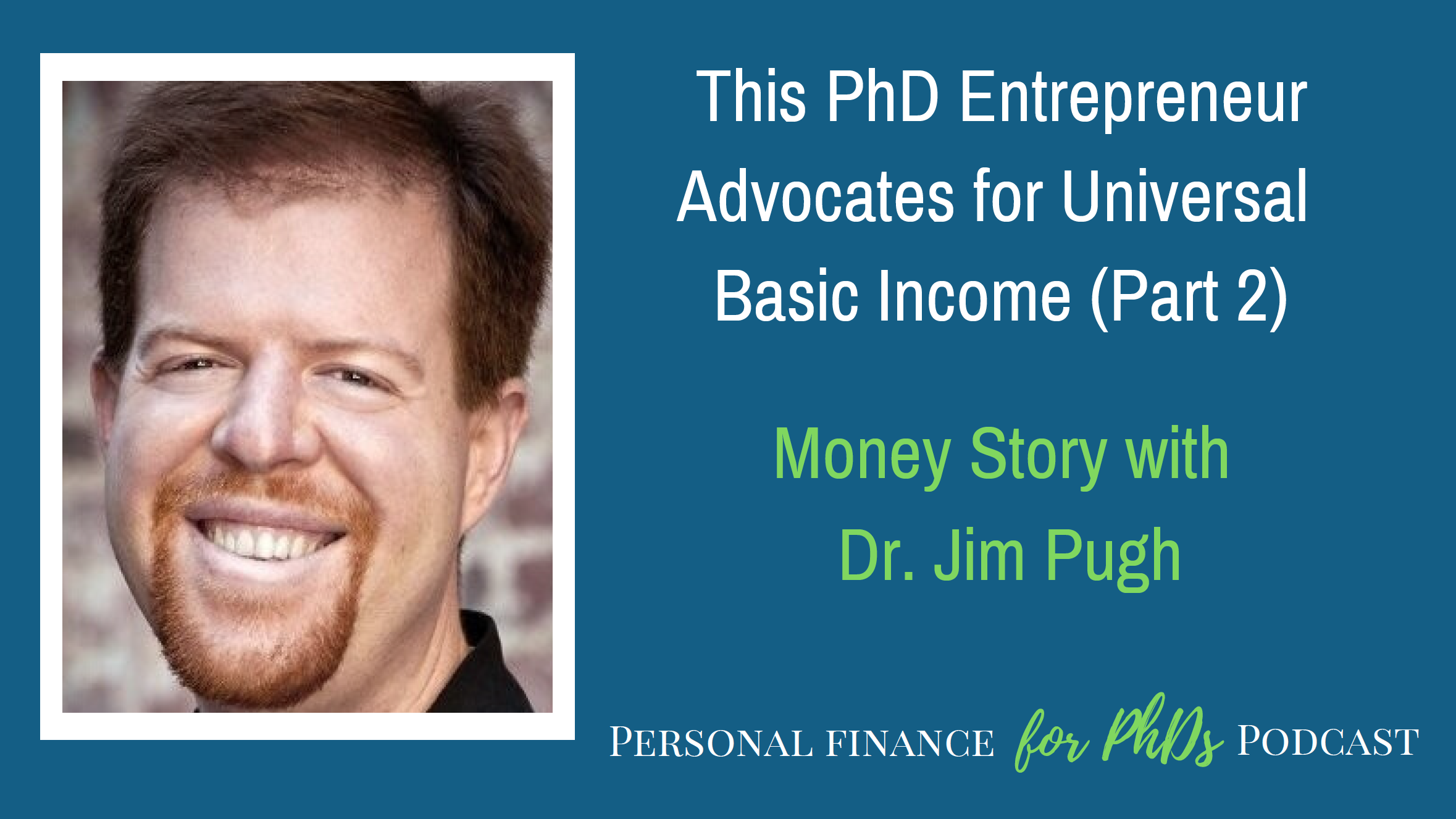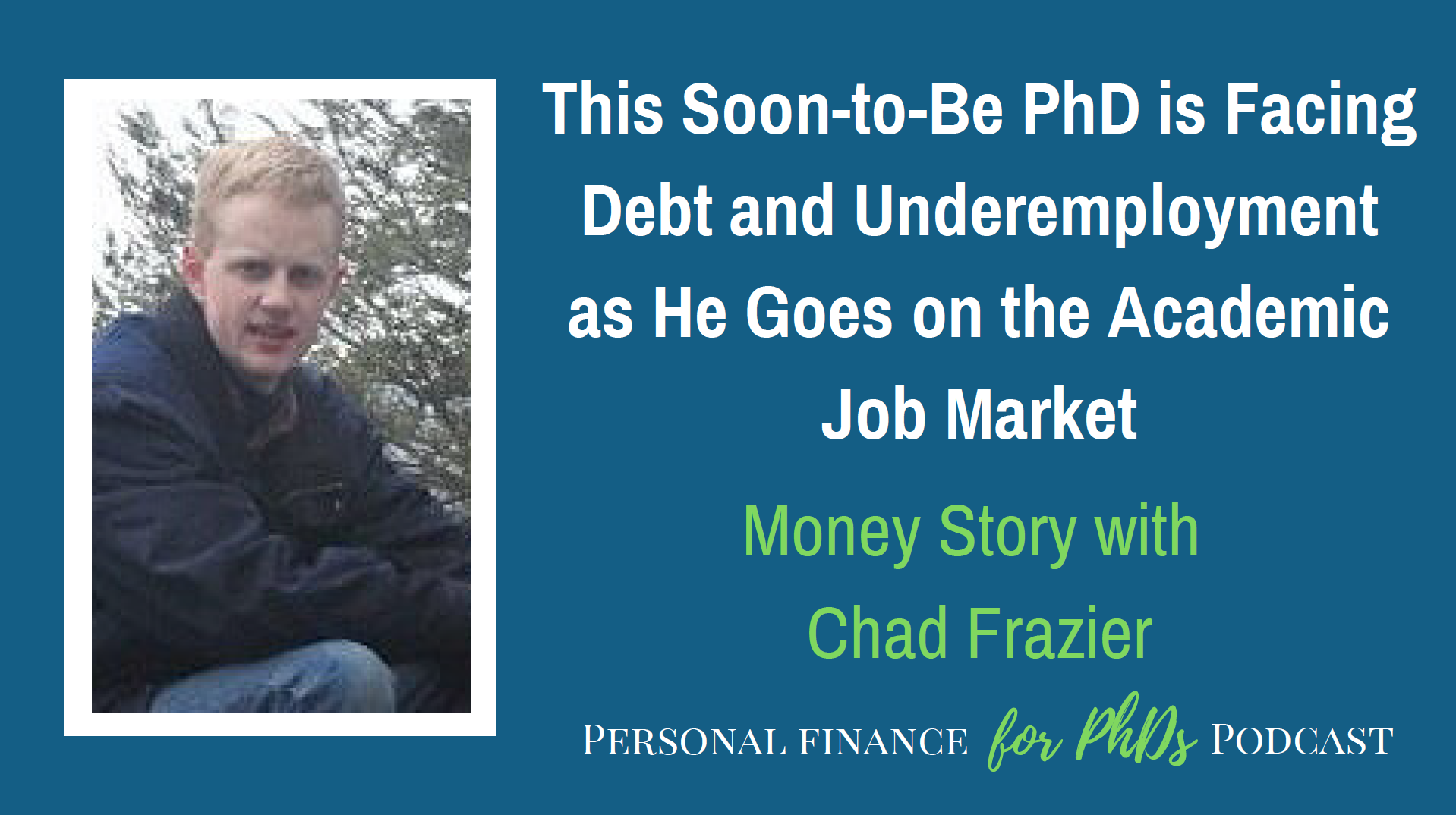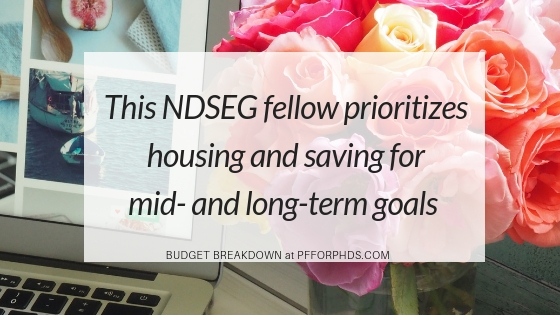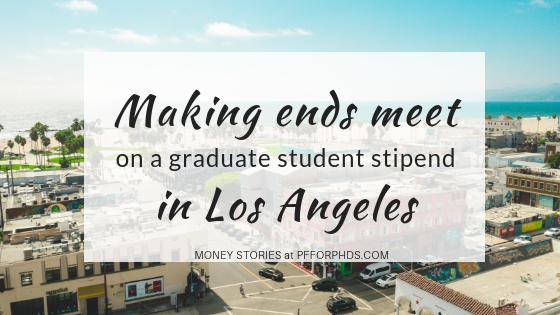In this episode, Emily interviews Dr. Jim Pugh, the founder of ShareProgress and co-host of the Basic Income Podcast. Jim defines universal basic income and outlines how it would alleviate poverty and other social ills, including results from research and real-life experiments with basic income. He describes the possible avenues by which universal basic income could be funded and whether it would replace our existing social safety nets. Jim and Emily speculate about how universal basic income might affect higher education funding, including PhD stipends and postdoc salaries, and PhD trainees themselves.
Links Mentioned in the Episode
- Your Money Or Your Life (Book)
- The Basic Income Podcast
- Universal Income Project
- PF for PhDs: Speaking
- PF for PhDs: Scarcity Mindset Part 1 (Dr. Lucie Bland)
- PF for PhDs: Scarcity Mindset Part 2 (Dr. Lucie Bland)
- PF for PhDs: Shifting Labs (Dr. Katie Wedemeyer-Strombel)
- PF for PhDs: Podcast Hub
- PF for PhDs: Subscribe

Teaser
00:00 Jim: You could basically think of this as universal basic fellowships for PhD students because I think that the dynamics that come with it very, very closely would match what it would be if you were getting a fellowship of the same size.
Introduction
00:18 Emily: Welcome to the Personal Finance for PhDs podcast, a higher education in personal finance. I’m your host, Dr. Emily Roberts. This is season six, episode two, and today my guest is Dr. Jim Pugh, the founder of ShareProgress and cohost of The Basic Income Podcast. In this second half of our interview, Jim articulates what basic income is and how it would alleviate poverty in the United States, including results from recent research and experimentation. He describes the possible avenues by which it could be funded and whether it would replace our existing social safety nets. We speculate about how basic income might affect higher education, including PhD stipends and postdoc salaries. Without further ado, here’s the second part of my interview with Dr. Jim Pugh.
Will You Please Introduce Yourself Further?
01:06 Emily: We’re back now with part two of my interview with Dr. Jim Pugh. In part one, he told us all about how he started a business a few years after graduate school, which ultimately allowed him a great deal of time freedom. So, his business pays for his lifestyle, but he only works at this point about five hours a week on the business. And that has allowed him to pivot to his advocacy work around universal basic income, which is what we’re going to be hearing a lot more about today. So, Jim, thank you so much for continuing this interview with me. And we want to start off with a basic question about universal basic income because frankly, I probably would not have really heard about this except that you and I are Facebook friends. And also, we’re recording this in September, 2019 and Andrew Yang is a candidate for the democratic nomination for president. So, between those two things, I’ve kind of heard a little bit about basic income, but I would love to hear a lot more about what it actually is from you.
01:59 Jim: Sure. Well, so, just to start with the definition. A universal basic income is a policy that would provide every single person in the country with unconditional cash payments regularly–most people talk about once a month–that’s actually enough to cover basic needs. And the idea of it is that, if you were to enact this, you eradicate absolute poverty. You’re ensuring that everyone does have enough money to cover the fundamentals. And so, in some ways it’s very, very simple because it’s just giving people some cash. But in other ways, we’re potentially talking about something very radical because we would for the first time be saying, we are fully abolishing absolute poverty. We’re saying that absolutely no one in the country should be poor and that we’re going to structure our systems with that in mind. And so the ramifications of that are pretty profound as far as what does it mean for work? What does it mean for health? What does it mean for people’s general lifestyle if you’re actually establishing that fundamental financial security floor?
Benefits of Universal Basic Income (UBI)
03:12 Emily: Okay, so let’s first take the benefits–the upsides of this–and let’s leave aside, for the moment, the practicalities of it, but just to talk about the vision for what this society might be like. So, what are the benefits that people might experience maybe who are currently in poverty but would be lifted out of that through UBI? You started to talk about this a little bit at the end of the last episode. So, there’s actually been research done in this area and there’s been some experimentation. So, can you talk a little about what we know already about how this might change things for people?
03:43 Jim: Yeah, so I think there are the obvious things that we know when people are poor, they can’t afford food or at least healthy food. They may be having trouble finding somewhere to live. They may not be able to take care of themselves. So, if you’re actually ensuring that everyone is up above the poverty line through just regular cash transfers, those are all things that are addressed, first order of facts. But I think beyond that, that’s where things start to get quite interesting because we have seen more and more evidence around how poverty and financial insecurity, if not causing, are at least are greatly contributing to a lot of other issues that we’re dealing with today. And so, people when they are approaching any aspect of their life, they can either be in an abundance mentality where they think, “Okay, I have enough. I can think bigger picture.” Or a scarcity mentality where they feel constrained, which basically gives people tunnel vision that they’re only thinking about what’s right in front of them.
Abundance Mindset, Higher IQ
04:51 Jim: And that difference has huge impacts on what happens to people. So, first off, there have been studies just looking at general intelligence, and there is a substantial shift in people’s IQ level between those two different headspaces. I think it’s around one standard deviation, so about 10 IQ points, smarter when you’re in an abundance mindset as opposed to a scarcity mindset. So, you’re making better decisions. Second, as I said, when you get that tunnel vision and so it means you’re just thinking about what’s right in front of you, it basically prevents you from longterm planning. You can’t be thinking about, “What is my life going to be even a year, much less, five, 10 years down the road?” if you’re worried about, Oh, how am I going to put food on the table tonight or tomorrow? And so, it allows people and encourages people to plan better, to make better longterm decisions which has big impacts around choices on education, choices around what sort of work they pursue, and ultimately, where they do end up in five, 10 years down the road.
Scarcity Mindset Damages Mental and Physical Health
05:58 Jim: And so, beyond just being able to afford health treatments, there’s also a lot of evidence that when you’re in a scarcity mindset, when you’re in poverty, it’s extremely damaging for mental health. And also for physical health, the stress has an impact on that as well. Crime–strong, strong correlation based on people’s financial security as to whether they’re more or less likely to commit crimes. And so there’s all of these second and third order implications around how things would look in our society if we weren’t to have this absolute poverty. That’s seems incredibly promising. And so, that’s why, again, our typical approach as a society is to, when something’s going wrong, to treat the symptoms of it. And this, instead, is really saying, “Let’s actually try to take a step back, deal with some of the underlying causes, and see how much easier that makes dealing with all the rest of this stuff.”
UBI and Job Flexibility
07:00 Emily: Okay. Sounds amazing. It sounds very, very compelling. I’m wondering a little bit more about what the vision for what this society may look like, should we bring it about. You talked earlier about jobs. And so, is the idea that not as many people would need to work? There wouldn’t necessarily be as many people in jobs? Or is the idea that you would have just more freedom and flexibility around when you want to work and when you went to have further training? How does this relate to the jobs, I guess is what I’m asking?
07:28 Jim: I think much more the latter. So, the idea is not that this is something that’s going to replace jobs wholesale. I think it does allow you to pursue a more general definition of work, I would say. And so, in the sense that “job” right now means a fairly specific thing in those conversations about more like a nine to five, like ongoing, consistent workplace. This does give you additional flexibility to think a bit differently about what is the right form of work for you to be doing. So, whether that’s part-time, whether that’s taking some time to get more of an education in the area that ultimately is going to allow you to do something that you feel better about and maybe much more productive for society. Whether it’s going to give you the flexibility if you want to do some sort of family care or staying home with children or elderly folks.
UBI Facilitates Entrepreneurship
08:25 Jim: Another one is entrepreneurship. If you’re considering starting a company or doing something that, in its early stages, may not be giving you a steady paycheck–having more flexibility around that as well. So, it opens up all these doors that most folks, I would say, don’t really have access to at this point in time. As far as overall impact on how much people are working, there have actually been a number of studies on this. And what it suggests is the results vary. That there are certain situations where, when you give people regular, unconditional cash, they work more. It seems like, either through stimulating the local economy and creating jobs or by giving people that flexibility, they end up doing more work. So, Alaska for the last 40 years has actually had a universal income provided by oil in the state. And recent studies have found that the overall work rate hasn’t changed, but you see a lot more people engaging in part-time work than you have in the past. Or, certain groups, studies have found there is a decrease in work, quite consistently actually across studies. The ones where that’s only really stood out is parents with young children and teenagers, basically. And interviewing folks involved in that, it seems like the former is spending more time staying home with kids, the latter spending more time at school. So, again, it’s not captured as work in how we measure it today, but it actually is work and potentially much more pro-social work than they might otherwise be engaged in.
10:06 Emily: So, this is really reminding me of–so I have not read this book. The book is Your Money or Your Life by Vicky Robin, I want to say. And she has a coauthor. Anyway, I heard a podcast interview with her within the last few weeks and she was talking about how in our current society, like you’re saying, there’s a lot of work that is not inside a job, right? There’s a lot of work that people do in our society to further it. A lot of women do this kind of work and it’s not valued in terms of a paycheck from a job, right? That doesn’t mean it’s not contributing to society. And so, I don’t remember if they specifically talked about basic income on that podcast, but this is a way to sort of reframe what counts as work and what counts as doing something valuable with your time.
UBI and Social Safety Nets
10:51 Emily: Yeah. Okay. So, I think I’m getting you here. I have another question: would this replace the social safety nets that we have currently and expand them, I guess you could say?
11:03 Jim: So, there are mixed opinions on this amongst people who advocate for basic income. I’m actually in the camp saying that this should not initially be treated as a replacement for any social programs. And I think the reasons are: one, is that I think there is widespread recognition across the political spectrum that our social safety net is not working as well as we would like it to. You get very different opinions as to what would allow it to work as well as we would like it to. But no one is satisfied with where it’s at. I think a lot of people have talked about, “Let’s provide basic income and then just cut much, if not all, of other social programs because this will eradicate absolute poverty. Why do we need to worry about anything else?” And there are actually, I would say, a lot of edge cases here where it’s people who are dealing with some specific challenge for which cash on its own is not going to quickly solve it. It will help a lot in many situations. But I think there is the risk that if you say, “All right, we’ll get rid of this other stuff and just give you cash,” you’ve basically taken a problem that requires multiple parts to solve and just replaced one part with another. And, in some cases, maybe they keep people worse off because of that.
Targeted Interventions Beyond UBI
12:25 Emily: Can you be more specific about what is being provided to people now that’s not money?
12:29 Jim: Yeah. So, I think disability being a good one where disabilities can look very different for different sorts of people. And in some cases, the support you would need to actually be able to live with disabilities requires much more than what a basic income would provide. And so, that’s a case where, if someone were to say, “We’re going to wipe everything off the books and just give you that,” a lot of people in that situation are going to be left far worse off. I think there are specific issues around addiction, in some situations, housing assistance where there is obviously there are areas where housing is far, far more expensive. And so, to think that a national UBI would actually be enough for people in the Bay Area to be able to get by, it’s not realistic. And so, that’s a situation where a targeted intervention beyond the UBI is going to be important.
13:22 Jim: And then I think there are other ones where it may be some general challenge where someone’s falling out of the workforce or coming back from deployment abroad where, again, making sure that they have enough cash is important, but there are additional services that come beyond that that also much better set them up to succeed than the cash on its own. And so, I think that that’s a key thing here is to recognize both how transformative and valuable UBI could be, but also that it’s not a panacea. It’s not a silver bullet. It’s something that will need an ecosystem of additional supports if we actually want to have an effective safety net. And so, I don’t think the safety net that we have right now is doing that well enough, and we need to be rethinking that. But I think that there’s a danger when people say, “UBI instead of that,” that we throw the baby out with the bathwater and end up in a situation where people may be much worse off than they are today.
Regional Cost of Living Considerations
14:25 Emily: Yeah. I think because this is, I don’t necessarily want to say it’s a new idea. I mean, you said Alaska has been doing something like this for 40 years, but it’s gained maybe national attention only in recent years. So, this is still an idea that’s being worked out. And at the policy level, if viable, we don’t know exactly what the ultimate solution would look like. And presumably, it would change over decades and generations anyway. So, I’m glad you brought up the cost of living question. Because the U.S. is very diverse in terms of cost of living. Is the ultimate idea still that people would get the same amount of money no matter where they live? Maybe with some additional help, like you were just saying, for certain people in certain areas?
Psychological Implications
15:05 Jim: So yeah, a key part of it is–and I don’t think I said in my original definition, but the idea is–this would be the same amount to everyone. And there are a couple reasons for that. One is logistical that it becomes much easier to manage if it’s the same for everyone. But the other is more psychological. One of the reasons for taking a universal approach is to try to eliminate stigma associated with receiving support, which in our modern age, we all see how much stigma is associated with receiving various forms of welfare. And that, if it’s something that everyone in society is getting, you’re able to get around that. Because why is it wrong for the homeless person on the street to get the check every month if I’m also getting my check every month?
Regional Supplements
15:52 Jim: And so, that’s another reason to have the equal, universal amount. But as you say, what that means is that in particularly different regions across the country, you’re going to see big differences as far as the implications of that. So, there certainly are parts of the country where if you were giving everyone a thousand dollars a month, you can survive without too much difficulty. If you’re in the Bay Area or other places, that does not get you very far. And so, that’s an area where you do need to have something beyond that. There’s been some discussion around regional supplements where you might be able to top up a equal federal amount with something that goes up more for more expensive areas. But I think beyond that, yeah, there may be other targeted interventions that are important.
UBI Increases Mobility
16:46 Jim: I think one question that comes up that we don’t really have a good answer to but people wonder about is, if you’re providing the basic income to everyone, it is going to increase people’s mobility. And so, if you currently feel tied to a certain geography for economic reasons, which may be very expensive, whether that gives you the option to relocate to somewhere that is less expensive. And then that gets very complicated because it goes into community ties and family and things like that where there may be other factors beyond just the economics of it. But it’s something that would be different if we did this and so, potentially, that at least partially would help to mitigate some of those challenges.
Commercial
17:35 Emily: Emily here for a brief interlude. I bet you and your peers are hungry for financial information right now, especially if it’s tailored for your unique PhD experience. I offer seminars, webinars, and workshops on personal finance for early career PhDs that can be billed as professional development or personal wellness programming. My events cover a wide range of personal finance topics or take a deep dive into the financial topics that matter most to PhDs like taxes, investing, career transitions, and frugality. If you’re interested in having me speak to your group or recommending me to a potential host, you can find more information and ways to contact me at pfforphds.com/speaking. We can absolutely find a way to get this great content to you and your peers even while social distancing. Now, back to our interview.
The Basic Income Podcast
18:34 Emily: I feel like I could continue asking you questions about this for quite a long time. It’s a good thing you have a podcast where other people can learn more about this. What is the name of your podcast?
18:45 Jim: Our name is a bit on the nose. We are The Basic Income Podcast. We’ve been introducing weekly episodes for about three years now and exploring both UBI specifically, but also, how it relates and connects to all sorts of other areas.
How to Fund UBI in the U.S.
19:00 Emily: Okay. So, I’m going to hold off on the questions that are still swirling in my head and just say, listeners, if you’re excited about this idea, or skeptical of it, or whatever, go ahead and check out the podcast and I’m sure there are other resources that you refer to from there where people can continue to learn even more. So, one more question around the vision of this, which is should we all, or enough of us in the United States, decide this is a good idea, what actually does it look like to fund this? Maybe post-transition, if there is a transition.
Enact Changes to the Tax Code
19:32 Jim: Yeah, so that’s another area where people have very different opinions around. Because, I mean, if we’re looking at it on its face saying, “All right, everyone in the country gets a thousand dollars a month,” that’s about $4 trillion, which is the size of our current governmental spending, which seems insane. But there are various caveats, I would say, that make it much more achievable than it may seem at a glance. My preferred approach to financing is first to recognize that, if you’re going to enact universal basic income, it means you need to make some significant differences in the tax code. And specifically, as a starting point, I think income tax. At its core, the goal of UBI is to provide people with financial security. And so, what that means is that, knowing you’re always going to get your check every month is important because who knows what may happen to you. And having it always there gives you that security.
20:31 Jim: But, if you’re earning a good paycheck, there’s no reason why you should be coming out net ahead, necessarily. And so, to basically update our income tax brackets such that, once people make above a certain point, their UBI is effectively being taxed away. So, maybe that’s four times the poverty level. So, if you as an individual are earning more than 50 or $60,000 a year, basically, you’d be getting your check every month and then you’d be paying a bit more in taxes to cover that expense. If you do it that way and look at what’s eventually the net cost, it drops to somewhere between 500 billion and a trillion dollars a year, which is still a lot, but a lot less than the four trillion we started with.
Shift Tax Programs and Brackets
21:18 Jim: And so, then there are different ideas as to how do you pay for that. That’s much more in line with other somewhat ambitious governmental programs. You can couple together some combination of a carbon tax, the financial transaction tax, a wealth tax. And sort of talking more about that, Elizabeth Warren wrote it up in her campaign where you’re able to raise that amount of money to cover that difference. And also, I think potentially looking at adding a few tax brackets at the top of the income level. If we were to go back to the taxation we had pre-Reagan, that would be bringing in a substantial amount there. So, with those things combined, you can relatively easily actually be able to cover the cost.
UBI and Graduate Training
22:02 Emily: Okay. Very, very interesting. So, I wanted to pivot a little bit to tie this really into more of our PhD audience because we haven’t brought that up so far really. I mean, you mentioned earlier that you know, having a basic income could afford people the flexibility to do more training. Of course, PhDs have a lot of that. Have you given any thought, or has there been any discussion around this, how basic income–I’m sure it’s been discussed at the undergraduate level, how that would affect people pursuing college degrees? You can speak about that a little bit if you like, but I am curious about what you think about how it might affect PhD training in the United States. And specifically, you know, you brought up earlier the scarcity mindset and how that prevented people from thinking longterm and it caused an effective IQ drop.
22:45 Emily: And in season four of this podcast, I published a two-part interview with Dr. Lucie Bland and she talked about her scarcity mindset that she developed during her PhD because she was living in poverty during her PhD. She was funded at a very low level. She lives in a very expensive city, and it’s something that a lot of people can relate to during their graduate training. Although you wouldn’t necessarily think about graduate students, a relatively privileged bunch, I would expect, necessarily being beneficiaries of basic income. But maybe during that training period, they are. So, can you just speak a little bit about that?
UBI and Financial Security
23:18 Jim: Well, I would actually just add on to that. What we’re seeing in the Bay Area right now is not only at the graduate student level, but actually the assistant professor level, in some places, that people are homeless. They can’t afford to live here. So, they’re living out of their cars. Yeah, I mean I think that it’s giving you that layer of financial security, which should help with that. I think, not just because it’s some extra money, but because it would be extra money not tied your employment education situation. And obviously this is not everyone, hopefully a small minority, but if you’re having some bad power dynamics with your professor and feeling like you don’t want to be working with him or her but are not able to step away because of finances you’re receiving from there, it gives you kind of that out knowing that, regardless of what you decide there, you have that income coming in otherwise.
Parallel: UBI and Fellowship Income
24:15 Emily: So, there’s actually a slight parallel there, actually with fellowship income, right? And you did your PhD outside of the state, so, maybe it’s a little bit different there. But here with fellowship income, you know, it’s an award that you receive as an individual. It’s based on your own merits. And so, it’s not necessarily tied to you staying in one person’s lab. And so, I again, I publish an interview in season four where someone was able to switch labs, did not have a good relationship with their first advisor, was able to switch labs partially because she received an NSF graduate research fellowship. And so, similar situation, right? If, you know you can go a few months and transition without a paycheck coming from your advisor, it gives you more freedom there to really seek out the situation that is going to support you best as a developing researcher. So, yeah. Excellent point there. Please continue.
24:59 Jim: Yeah. Well, I was going to say, I think you just nailed it. You could basically think of this as universal basic fellowships for PhD students because I think that, yeah, I think the dynamics that come with it very, very closely with match what it would be if you were getting a fellowship of the same size. I mean obviously with the added flexibility that you could leave a PhD program and still have it. But as far as the context within graduate school, I think that that’s basically what it would be.
25:27 Emily: Just to explore that a little bit further. Because I do think it’s a good analogy. So, one of the great things about fellowship income is that it gives you more freedom in your research, right? So, if you’re not beholden to working on a specific grant for your advisor, like you often are in STEM fields if you have a research assistantship. The fellowship allows you more intellectual flexibility and pursuing projects that are more in line with your own goals. It allows you to pursue collaborations. It’s just a greater degree of freedom. Now, some advisors exact more or less control when they do have people on a grant for research assistantships. That’s sort of up to their discretion. But yeah, the flexibility there in terms of your intellectual pursuits would then translate in terms of UBI into your general career pursuits, life pursuits. It would just be a much broader funding of that.
26:14 Jim: Yeah, I think that’s right. I think I could imagine there would also be kind of a trade-off on that versus greater financial security. Because one of the questions would be, if everyone were getting a basic income, would you still have PhD student stipends and outside fellowships at a similar level? If you would, okay, everyone’s going to be much more economically stable.
Final Thoughts on UBI and Academia
26:40 Emily: You said earlier as like a touch point that, in your vision of this, around 50 or $60,000 of income, that’s when the UBI would kind of phase out. And for the graduate student level, graduate students don’t reach that point. A lot of postdocs don’t reach that point. So, in some sense, if nothing changed on the grant side of things, then it would boost your income. But yes, the question is whether people would still be funded to the same degree given that they have that baseline. So, if the idea right now in academia is we give people just enough money to live on so they don’t have to have other jobs that distract from their PhD research, well then maybe they would just decrease that funding. So, yeah. Any other thoughts around that? I’m sure this has not been very fully explored because it’s a very niche interest.
27:24 Jim: Well, no, I think that this is a specific example of something that is much broader, which is basically, if we were to have UBI, what does that do to wages? And the theory is that it depends a lot on what type of work you’re talking about and how much there is the internal versus external motivation around doing that work. Because if someone’s only doing the work because they’re getting paid to do it, UBI actually has the potential to then increase wages because it basically gives them more leverage to say, “Oh, well I don’t actually like this work. I’m going to go pursue other options.” And a company might then have to say, “Oh, well instead of $8 an hour, we’re going to pay you $15 an hour.” On the flip side, if it’s something that people just want to be doing for other reasons, like perhaps going to graduate school since not too many people go to graduate school to get rich, then there’s the opposite potential where, if someone is basically willing to do it, assuming that they won’t be starving, then universities may say, “Okay, well you’re UBI now instead of giving you $18,000 a year, we’re going to give you six.
28:43 Jim: So, I mean, it’s a whole other topic, but I would say that that’s where unions might come in handy. But yeah, I think it’s one of those areas that it’s very, very difficult to answer and know exactly what will happen until we actually do it. So, we can hypothesize around it. But yeah, that’s an open question.
Value of Teaching and Shifting Landscape in Education
29:07 Emily: Yeah, I guess I’m also thinking about sort of we’re having larger debates and angst in academia around the value of teaching, right? Because there’s this huge adjunct workforce that is, you know, severely underpaid. They don’t have job security and yet such a huge percentage of the classes that undergraduates and graduate students take are being taught by people who are not full-time employees of the institution that they work for or institutions. And it’s just such a difficult area right now. I can definitely see how UBI would help people in that situation, right? Because they are also experiencing poverty or near poverty-like situations, many of them. But, yeah. I mean, we’re in a transition point for education broadly. Like, if we’re moving to massive online courses and so forth, maybe if your teachers are needed. I don’t know. There are just a lot of transition here. I guess when we’re talking about maybe some kinds of jobs disappearing or transitioning, teaching at the higher education level, is one of those jobs that is sort of in transition in the workforces. And so, yeah. UBI is just kind of another element to kind of throw into the mix here that we don’t really know how it’s going to play out entirely.
30:13 Jim: Yeah, I think that’s right. And this applies less, I would say. I would expect it to still apply to some degree, but on the flip side, as far as what is the responsibility of the teacher versus the student? I think, certainly at the elementary and high school level, there’s ample evidence that financial stability of the family that the students are coming from makes a big difference as far as how well they’re able to learn. And so, that’s, I would say, another wrinkle that gets thrown in here as well, where if you are ensuring that everyone who is in the class is in more of an abundance mindset, what implications does that have to what is the most effective way of educating?
Tell Us More About Your Podcast
30:55 Emily: Such an interesting topic, Jim. I think that people will definitely want to follow up with you and learn more about this. Maybe have more discussions with you around what does the potential of UBI look like in affecting higher education and graduate students and postdocs and trainees. Again, tell us a little bit more about what you do. We have the name of it, but what do you do on your podcast?
31:14 Jim: Yeah, so we cover a lot of different areas. Most of the episodes, I think like yours, feature or are centered around a guest interview on some topic. And so, we’ve covered everything from, yeah what does UBI do with the disability community, to what’s happening in Canada with UBI to digging in on some of the modern control pilots that are being done in the U.S. and abroad to what is the connection between UBI and housing? And so, it really covers a lot of different areas, but generally we bring on an expert, we chat with them, and then we talk through what are the ramifications of what they said. And so, really try to dig in a little bit on many different areas.
UBI and Healthcare, Education
32:03 Emily: So, actually one follow-up question that goes maybe more back to our earlier conversation with what does this vision look like? Does the implementation of UBI come with it or depend on a revolution within healthcare and also in higher education? You know, paying for higher education.
32:21 Jim: Yeah. So, I would say healthcare comes up a lot. And in my view, UBI can only truly be successful if we actually have truly universal healthcare because it basically counts on the assumption that you can somewhat reasonably project what is the cost of living for people across the country. In our current system. If you don’t actually have universal coverage, that is impossible. I mean we see all the time, all these cases of people having insane bills for services. And as long as that continues to happen, there’s no way to actually guarantee universal financial security. And so, I see those two things as very, very complementary and part of a whole package that we should be fighting for. And education, perhaps not quite as closely coupled, but I think if we’re talking about what is beyond just financial security, what is really setting people up for longterm success, it seems obvious that we want to make that as accessible as possible. And so, a model where everyone in society has access to higher education is certainly the way to go.
Best Financial Advice for Another PhD
33:29 Emily: Gotcha. Okay. Standard question as we wrap up here that I ask all of my guests which is what is your best financial advice for another PhD? And that could be related to something that we’ve talked about in these two episodes, or it could be something entirely new.
33:44 Jim: I mean, I think it’s just like figuring out your sustainability. So, I mean, thinking about where you’ll be going with your PhD and what is your cost of living then, but just trying to set yourself up so that you’re not heading towards a cliff somewhere, which yeah, I feel like it would look very, very different depending on your specifics.
34:06 Emily: Yeah, definitely. It’s something I talk about a lot for people who are sort of in transition, right, out of graduate school, out of the postdoc into other positions, especially when they’re moving. Make sure you understand the cost of living. As you brought up earlier, you know, in San Francisco, make sure you understand the cost of living that you’re getting into and that the salary that you’ve been offered is is appropriate for that area and negotiate if that is not your initial offer. So, thank you so much for that advice. Jim, this has been a fascinating conversation, really just the tip of the iceberg on this topic, and so thank you so much for joining me.
34:38 Jim: Yeah, I really enjoyed the conversation as well.
Outtro
34:40 Emily: Listeners, thank you for joining me for this episode. Pfforphds.com/podcast is the hub for the Personal Finance for PhDs podcast. There you can find links to all the episode show notes and a form to volunteer to be interviewed. I’d love for you to check it out and get more involved. If you’ve been enjoying the podcast, please consider joining my mailing list for my behind the scenes commentary about each episode. Register at pfforphds.com/subscribe. See you in the next episode! And remember, you don’t have to have a PhD to succeed with personal finance, but it helps. The music is Stages of Awakening by Podington Bear from the free music archive and is shared under CC by NC. Podcast editing and show notes creation by Meryem Ok.








